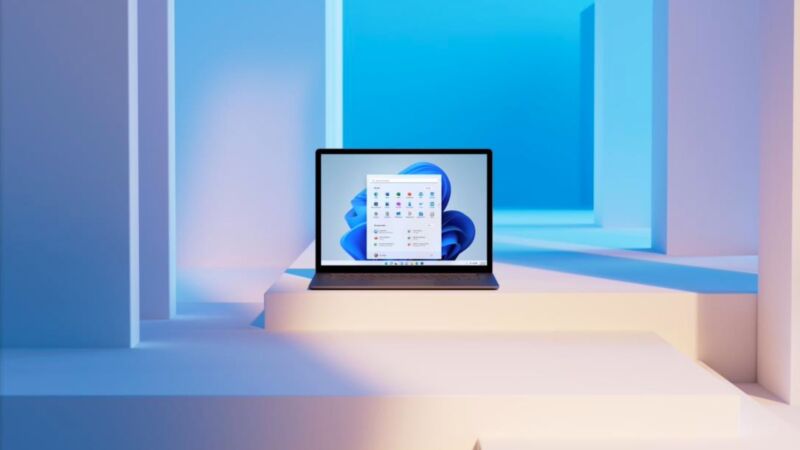
Microsoft will be tending to some of the unfinished parts of Windows 11 in an update next month, according to a blog post by Microsoft Chief Product Officer Panos Panay. Foremost among the new features will be a public preview for Android apps running in Windows, a feature Microsoft promoted when it announced Windows 11 back in June 2021.
Microsoft also called out a few other areas of improvement in the post: redesigns for the Notepad and Media Player apps, taskbar improvements, a universal call mute and unmute button, "easier window sharing," and adding the weather directly to the taskbar instead of keeping it in a widget.
Most of these updates have already been available for Windows Insiders in the Beta and Dev channels for a while, so you can read our preview coverage (for Notepad, taskbar changes, and lots of miscellaneous bits and pieces) to get a good sense of what things will look like. It's possible that we'll see changes that Microsoft hasn't made public yet, but major changes are unlikely to skip the preview channels before being widely released.
The updates that Microsoft has released since Windows 11 came out in October do collectively answer one question we asked in our review: whether the new OS's shortcomings would need to wait for Windows' once-a-year servicing updates to be addressed. Microsoft will likely hold at least some major changes and new features for Windows 11 22H2 later this year, but the company is clearly taking a "whenever they're ready" approach to individual app updates, still-in-preview features it announced last summer, and minor functional improvements based on user feedback.
Microsoft wasn't specific about Windows 11's adoption numbers, but Panay did say that the Windows 11 upgrade offer was "beginning to enter its final phase of availability, putting us ahead of our initial plan of mid-2022." Microsoft started the upgrade process from Windows 10 to Windows 11 on newer systems first, giving the company a chance to fix early problems (and there have been plenty) before rolling the OS out to all PCs that meet the stringent system requirements. Windows 10 users can still easily defer the Windows 11 upgrade if they'd like, but they will at least be offered the option to install the new OS via Windows Update soon if they haven't already. (A manual install is also an option and is the only way to install Windows 11 on PCs that don't meet all of the OS's requirements.)
reader comments
134